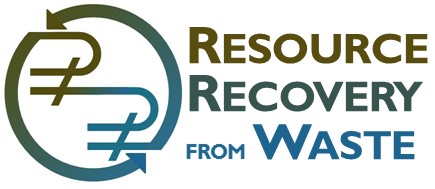Distilling lessons from RRfW programme into policy and regulatory recommendations.
The publication of the Government’s 25 year Environmental Plan and the ongoing development of a ‘Resources and Waste Management’ strategy meant that 2018 was an opportune moment for RRfW academia and industry to engage with policy makers. Innovations in resource recovery technology will require facilitative policy and regulation in order to ensure the translation of research into practice. Using case studies and research outputs arising from the RRfW programme we actively worked with policy makers and advisors to promote knowledge transfer from the RRfW projects and mini-projects.
The policy impact project looked to review and consolidate relevant outputs from the RRfW programme under a number of common themes:
- Economic, environmental, social drivers and barriers
- Infrastructure types, recommendations and constraints
- Policy implications
- Gaps in knowledge in relation to policy
The project aimed to highlight the potential for optimising the management of industrial wastes for both economic, environmental and social benefits. Findings were communicated via policy and practice notes focussing on two areas:
- Making the most of industrial wastes: strengthening resource security of valuable metals for clean growth in the UK
- The organic waste gold rush: optimising resource recovery in the UK bioeconomy
These provide a summary of the potential opportunities for resource recovery in these areas and highlight where regulation and policy impact on the implementation of the technologies in practice.
Collaboration was key to the success of this work and the policy team at RRfW engaged with stakeholders throughout the process to understand where RRfW research fits in the policy and regulatory landscape, further building on our network of policy, industrial and academic stakeholders.
The RRfW programme aims to promote waste and resource efficiency to ministers and policy makers from across government. This is in growing recognition that efficient waste management is not just an environmental issue, but has an important role in the transition to a circular economy. As well as the policy and practice notes presented above, a joint policy event was held in the autumn of 2018 in conjunction with the All-Parliamentary Sustainable Resource Group: please see our blog of the meeting for further details.
This work was funded by a NERC Policy Impact Award to the RRfW programme. RRfW policy team comprised of Rachel Marshall (AVAnD), Anne Velenturf (RRfW), Juliet Jopson (RRfW), and our thanks goes to the many other members of RRfW and our stakeholders who contributed to the process. For an overview of all the policy work and outputs from the RRfW programme, please visit our policy page.

